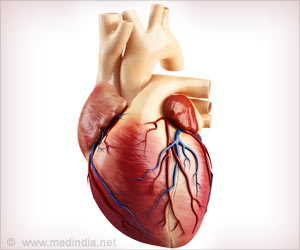Most severe heart attacks that occur were found to be more are deadly in the winter when compared to summer. In the UK, for every 3 minutes a heart attack occurs and only 7 in 10 people survive.

‘Further research is required to understand why heart attacks are more deadly in winter than in summer.’





The overall number of heart attacks was roughly the same in the coldest half of the year, compared to the warmer months (52% between November and April), with the most serious heart attacks leading to cardiac arrest and cardiogenic shock. The risk of dying within 30 days of a severe heart attack was nearly 50% higher in the six coldest months, compared to the six warmest months (28% vs 20%).Cardiac arrest is when the heart suddenly stops pumping blood around the body, while cardiogenic shock is when the heart can't pump enough blood to meet the body's needs. Both conditions are often caused by a severe heart attack, but not everyone who has a heart attack has a cardiac arrest or cardiogenic shock.
In the UK, someone goes to hospital with a heart attack every 3 minutes and only 7 in 10 people survive.
Dr Arvin Krishnamurthy, who led the research from Leeds, said: "There is no physical reason why a heart attack, even the most severe, should be more deadly in winter than in summer so we must do further research to find the cause of this difference and remedy it. The next step is to find out if this trend is seen nationwide.
"Potential explanations could include longer time to treatment, prolonged hospitalisation and delays to discharge, and increased prevalence of winter-associated infections, which in the sickest patients, could be potentially lethal.
Advertisement
Professor Metin Avkiran, Associate Medical Director at the British Heart Foundation, said:
Advertisement
"Although we've made huge strides in the last 50 years, we must urgently fund more research to continue to drive down the number of heart attacks and ensure more people can live full lives even after a heart attack."
Source-Eurekalert















